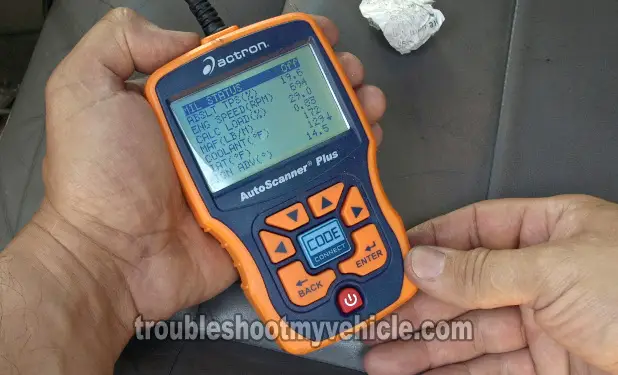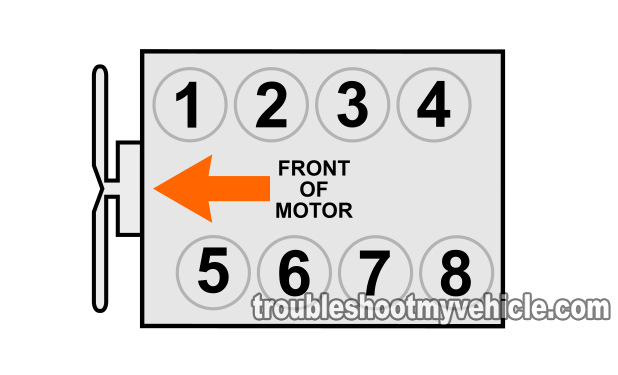
This tutorial will help you to diagnose diagnostic trouble codes P0172 (System too Rich Bank 1) and/or P0175 (System too Rich Bank 2).
I'll go into the basics of what these trouble codes mean and how to confirm that there really is something causing the PCM to set these codes. I'll also offer you a testing strategy to find the root cause of them.
Although you can apply this info to any Ford vehicle with a V6 or V8, this info concentrates on the Ford 4.6L and 5.4L V8 engines.
Important Suggestions And Tips
TIP 1: A scan tool with Live Data capability is a must, to test diagnostic trouble codes P0172 and P0175.
You don't need an expensive professional technician level scan tool (that cost around $2K to $5K [US]). A simple generic scan tool with Live Data will do (Don't have a scan tool? Need a scan tool? Check out my recommendation: Actron CP9580 Scan Tool).
TIP 2: Some of my testing suggestions involve tests with the engine running, this means you've got the on your toes and alert. Think safety all of the time.
TIP 3: Before you start you testing, take a look at the section: P0172 And P0175 Essentials and more importantly How Does the PCM Know a Rich Condition Exists?. These two sections will help you to make 'heads and tails' of what's needed to troubleshoot these two codes.
P0172 And P0175 Essentials

One of the most important things you need to know is that these two trouble codes are not accusing the oxygen sensors as having failed. As a matter-o'-fact, they don't accuse any specific component as having failed.
What they are reporting is a continuous rich condition that is making the PCM (Powertrain Control Module = Fuel Injection Computer) reduce the amount of fuel being injected into the engine to an extreme amount.
And so, to effectively diagnose the problem that's causing this rich condition, you need to understand how the PCM fine tunes the amount of fuel injected into a running engine. You'll also need to know what terms like rich, Lean, Bank 1, Bank 2, Fuel Trim, O2S11, and O2S21 mean.
Don't worry, none of this stuff is hard to grasp, and in this article, I'll explain it all in plain English.
Both codes mean, in layman's terms, that the PCM (Powertrain Control Module= Fuel Injection Computer) is reducing the amount of fuel that it's injecting into the engine and that it can no longer fine-tune the air/fuel mixture.
This reduction in fuel is carried to an extreme because 'something' is causing the air/fuel mixture to be to fuel heavy.
Specifically, this is what each code means:
Diagnostic Trouble Code P0172:
- Tells you that bank 1 is the one having the issue. Bank 1 is the engine bank that holds the spark plugs for cylinders 1, 2, 3, and 4.
- The PCM is correcting the air/fuel mixture to its maximum lean limit. What this means is that it is reducing the amount of fuel it can inject to its bare minimum in this bank of cylinders.
Diagnostic Trouble Code P0175:
- Tells you that bank 2 is the one having the issue. Bank 2 is the engine bank that holds the spark plugs for cylinders 5, 6, 7, and 8.
- The PCM is correcting the air/fuel mixture to its maximum lean limit. What this means is that it is reducing the amount of fuel it can inject to its bare minimum in this bank of cylinders.
